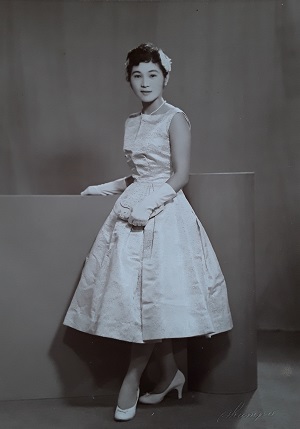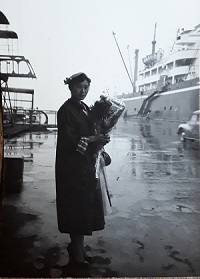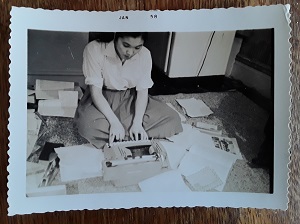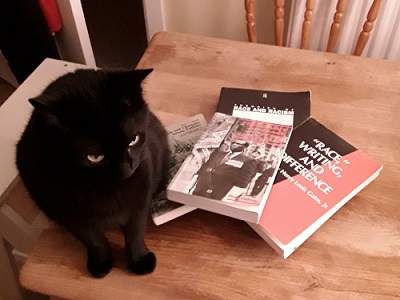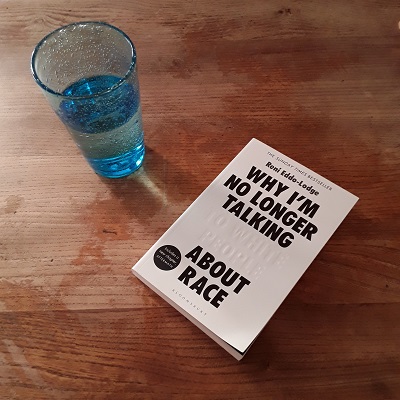(I mainly
talk about issues for global majority people here, alongside other protected
characteristics – rather than attempt even-handed discussion of all the
protected characteristics. Race politics is the lens I am most focused to look
through just now, particularly because it seems as if this is a peculiarly
deeply entrenched privilege/prejudice in society and in our Higher Education
institutions.)
Interest and
use of the concept ‘intersectionality’ has increased exponentially since Crenshaw
(1989) first introduced this key term, building on Black Feminist Standpoint theory and
Critical Race Theory. (A good account of Standpoint Theory can be found in
Harding, 1986, and there are articles about Critical Race Theory on OpenLearn’s
Race and Ethnicity hub.) ‘Intersectionality’ has been key in opening our minds to the understanding that discriminations (and also privileges) do not happen one at a
time, that many people may be subject to many different prejudiced perspectives
of our position in society all at once.
Here I would
like to suggest we might build on Crenshaw’s concept, to introduce the idea of
‘articulation’. Intersectionality identifies the multiplicity of issues faced
by Black women or Black lesbian women or LGBTQ people with a disability. ‘Articulation’
can help identify how to overcome ways privilege operates to silence and
contain people with protected characteristics. From identifying
‘intersectionality’, we could move to asking: “Are we enabling articulation?”
Definition
of key term: articulation.
‘Articulation’
has two meanings:
- Speaking, putting into words;
- Two or more things connected in a way
which allows them to move together.
Both of
these are restricted for people experiencing ‘intersectionality’.
Example
1: class and ethnicity
For example,
class privilege, in particular, sometimes works to over-write or speak over the
top of other protected characteristics. Class privilege already of course means
that those from upper/middle class backgrounds are articulating at the expense
of those from lower/working class backgrounds, however I want to focus here on how
privileges articulate together to strengthen other privileges.
Those from global
majority backgrounds might appear to have the same social networks as global
minority people from the same socio-economic class background. However, we are
not always able to articulate – in the sense of speak our points, and in the
sense of move together fully joined up in society – as easily as global
minority people. Where social networks are based more on class identity than
ethnic community, upper class people of global majority backgrounds, or from
LGBTQ communities, or with a disability, may be treated with initial suspicion
until emphasising an accent or talking loudly about where we were at
school/college proves our credentials. Even then we may not be regarded as full
members of that network. Those who are successful in negotiating upper class
dynamics of power relations usually have a deep understanding that people with
protected characteristics are not as powerful as those with the full set of
privileged identities, and therefore not as useful in the network (‘social
capital’, as Bourdieu would call it). They are therefore less likely to engage
as closely (“articulate”) with those with protected characteristics.
The
increased anxiety of those with protected characteristics to prove credentials
in an upper class social network with the advantages this offers, also works to
further instate socio-economic class privilege.
Global majority
working class people, too, are often counted as from Black, Asian, minority ethnic
communities, separate to working class communities. Global majority working
class and global minority working class people are pitted against each other by
campaigns which try to persuade global minority working class people that
global majority people are unfairly taking jobs, housing and other resources.
This disguises the fact that the funding for social resources is being unequally
distributed across class lines, not race lines.
Example
2: ‘white saviour’ behaviour
If you
have come here to help me, you are wasting your time. But if you have come
because your liberation is bound up with mine, then let us work together.
(Lilla
Watson, drawing on thinking of an Aboriginal Rights Group she had belonged to
in Queensland, at the 1985 United Nations Decade for Women Conference,
Nairobi.)
In ‘white
saviour’ behaviour, by stepping in to ‘help’, people take up a position of
privilege they belong to and ‘reach down’ to those below them. In so doing,
they re-state their power. The very act of ‘helping’ paradoxically fails to
offer full articulation to those they want to support. When those in a position
of power speak for them, the authentic voice of those being ‘helped’ is over-talked
by the voices of the powerful. Those in power move for them. Those with a protected
characteristic are not enabled to engage in “articulation”, either in speaking
for ourselves or making our own moves.
This is not
diversity, but the co-option of diverse voices into dominant power and culture.
As an example in Higher Education, we see this when research projects are conducted
about those in a position of disadvantage by those in a position of privilege, for
which the researcher may both earn a salary/fee and gain kinds of cultural and
social capital that enable them to advance their career. Meanwhile, those they
are writing about have their views expressed at second hand, and are not
necessarily enabled to articulate beyond that.
The
researcher may genuinely hope their project will lead to change, but figures
about the issues faced by global majority communities during the recent
pandemic indicate that we have not come very far, very fast in tackling
racial/ethnic disadvantage. Even during the 1980s, for example in the 1982
collection of essays: The Empire Strikes Back (CCCS, 1982), researchers
like Errol Lawrence were speaking critically of the way: “sociology generally
and ‘race/ethnic-relations’ sociology too, are top-heavy with white personnel”
(p.131). Of course it is important for global minority staff to take up a
perspective which recognises issues of race politics, and to do work to tackle
privilege/prejudice in their own field of study. However, it is now 40 years
since The Empire Strikes Back was published. We do not seem to have
moved very far during those four decades towards ensuring that global majority academics
have equal opportunities even to research and write about the issues we and
members of our own communities face.
One way of
enabling articulation for global majority communities, then, is to look to
create opportunities for members from those communities to do paid research
that supports their career advancement. We can do this partly by mapping the researchers
involved in these studies. If we are seeing that this research is being done by
disproportionate numbers of global minority people, we should ask how it is
that they are being enabled to articulate through this research. What is
preventing us from recruiting more global majority researchers to the work?
What could we do to enable better articulation for global majority researchers,
and thereby communities, in this work?
A positive
example of enabling articulation in Higher Education
One way of working to do this is the 100
Black Women Professors programme.
Identifying that only 35 (now 41 61) of 22,000 Professors are Black women shows us
the impact of intersectionality in Higher Education. Engaging directly with the
teams who manage Black women who aspire to be Professor, the 100 Black Women
Professors programme enables universities to understand how privilege/prejudice
might form a barrier for groups of staff with a protected characteristic.
Working together towards mutual liberation, enables Black women in particular
and hopefully more staff who face similar barriers, towards articulation with
and within the institution.
A positive example of articulation, intersectionality at
work.
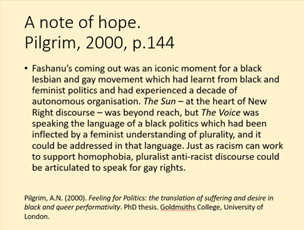
Picture of a
powerpoint slide that says:
A note of
hope.
Pilgrim, 2000, p.144
Fashanu’s coming out was an iconic moment for a black lesbian
and gay movement which had learnt from black and feminist politics and had
experienced a decade of autonomous organisation. The Sun – at the heart
of New Right discourse – was beyond reach, but The Voice was speaking
the language of a black politics which had been inflected by a feminist
understanding of plurality, and it could be addressed in that language. Just as
racism can work to support homophobia, pluralist anti-racist discourse could be
articulated to speak for gay rights.
I offered
this quote from my PhD thesis in a recent talk I gave about Justin Fashanu and
the exposé of his sexuality in the media. I
discussed how a group calling themselves Black Gays and Lesbians Against Media
Homophobia put pressure on The Voice newspaper, by pointing to the
equalities policies of local government who were substantial funders of The
Voice through placing job adverts with them. They were able to persuade the
newspaper to change its editorial line to one that was supportive of the Black
gay community of the time.
The Sun newspaper remains beyond the reach of
equalities, diversity and inclusion activism. However liberal institutions are at
least starting to recognise the detriment which privilege embedded in their own
systems: systemic prejudice, institutional racism, causes to those with
protected characteristics. There is uncertainty about how to move from a ‘white
saviour’ mode, however the recognition that tackling prejudice and
discrimination will not be straightforward or simplistic is a start.
To move on from this start, I suggest
that we need to think not just about publishing pay gap data, and hearing from those
whom the institution fails to resource, support and promote. The institution
needs to think about what will enable articulation for all staff.
Fit with academic
theory
In terms of academic theory,
‘articulation’ fits well in postmodern thinking. There are many tropes based
around speech or text which are used to consider gender/sexuality (Butler using
Austen’s “speech act”), and power in general (Foucault on “discourse”). The
Marxist Structuralist thinker Althusser’s concept of “interpellation” of
identity is also often used in postmodern thinking.
Bourdieu’s ‘habitus’ also has
congruence with an idea of ‘articulation’. I have referred here to two of Bourdieu’s
four forms of capital: social and cultural. As well as economic capital, Bourdieu
talks about a fourth form: symbolic capital. Symbolic capital is what the other
kinds of capital translate into if they are legitimated. We all have social
networks, but not all of them have the kind of power and influence that means
they can translate from social capital into symbolic capital. Articulation is
perhaps the means by which other forms of capital translate into symbolic capital.
(Cardiff, 2022/ edited 2023)
(Some) references:
Centre for
Contemporary Cultural Studies (1982). The Empire Strikes Back. London:
Routledge.s
Crenshaw,
Kimberle (1989) "Demarginalizing the Intersection of Race and Sex: A Black
Feminist Critique of Antidiscrimination Doctrine, Feminist Theory and
Antiracist Politics," University of Chicago Legal Forum: Vol. 1989,
Article 8. Available at: https://chicagounbound.uchicago.edu/uclf/vol1989/iss1/8
Harding
(1986). The Science Question in Feminism. Cornell University Press.
Pilgrim, A.N. (2000). Feeling for
Politics: the translation of suffering and desire in black and queer
performativity. PhD thesis. Goldmsiths College, University of
London.

